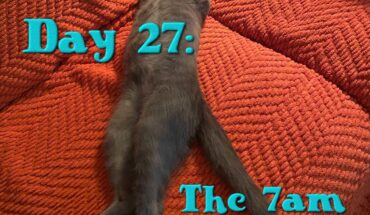
“#ds139 ‘Writer’s Block'” by Sharon Drummond is licensed under CC BY-NC-SA 2.0.
I’m a writer who loves a constraint. It is much easier to write when given a limiting factor than to write “anything, anything at all!” This year, I need to write 50,000 words by the end of the month. Wait, you ask. Isn’t that NaNoWriMo? Why yes, yes, it is. My life is NaNoWriMo. How timely!
I’m writing the second draft of my next Idyll mystery. I need 50,000 words because the first draft had a serial killer and I don’t writer serial killers and why is there one and why are none of these characters’ personal lives tied to their exterior conflicts? Or to boil it down: the first draft sucked. It needs a massive overhaul.
Staring down a word count of 50,000 in such a constrained time period (did I mention my full-time job?) is making me assess how I write. Here are lessons I’ve learned to date:
- I don’t have time to pants this. Usually I am a non-plotter, but I don’t have that luxury now. Before I write each chapter, I create a one or two sentence outline of what will happen in it.
- I’m breaking each week into 50 page chunks, because my brain is tricked into thinking 50 pages a week is not that big a deal. This works until I mention this to other people, who say, “That’s crazy!” I have now stopped talking to people.
- I have a spreadsheet that summarizes each chapter’s content. It marks the date each chapter takes place. Because I’m dealing with multiple POV characters in multiple timelines, the spreadsheet allows me to check I haven’t abandoned any POV character for too long.
- If I am feeling stuck and can’t see my way to the next page, I write a scene I know needs to happen later in the m.s. These tend to be meaty scenes where important things happen so they are fun to write. Dessert before dinner for the win!
- I looked back at my earlier books: Idyll Threats and Idyll Fears, to see how many pages each draft was when I sent it to my editor. This gave me a sense of how many words/pages I still had left to write. It also helped me gauge how much should happen in the first 50 pages, the first 100, the middle, and so on.
- I cut pages from the first draft ruthlessly. The serial killer is gone. Deleted permanently. But all those other scenes I dumped into a document called “cut scenes.” Bits and pieces of those scenes can be reinserted where they make sense and work well. And then it’s like, bam, I wrote three pages in 15 seconds through the magic of cut and paste!
- My mentality is very different. I am all about putting words down and making the story fit its model. The polish and shine comes later. None of this let me edit the last chapter before I move on to the next. I haven’t time for that.
- The limited time means I can’t indulge in all the time-sucking habits I usually entertain: Twitter, video games, communicating with other humans. This single-minded focus is good. I’m definitely not spinning my wheels as much.
- I have thousands of people to commiserate with thanks to NaNoWriMo. Watching people post their word counts make me jealous and happy. I feel like we’re all fighting the same battle against the same stupid monster and I hope we win. I really do!
- I listen to my gut sooner. If I think a scene might be boring, I don’t debate keeping it. I cut it. If I suspect that this tertiary character should be a secondary character I start bumping the character up and out, immediately. My gut is generally right, but in the past, I’ve debated more because I had time to do so.
- I set expectations with friends, family, co-workers. Anyone who requires part of my time. I am clear that I will not be spending as much time with them because I have 50 pages to write this week. Then I watch their faces contort into looks of horror.
- Hydrate. Sleep. Dream. Write. Repeat.




2 comments